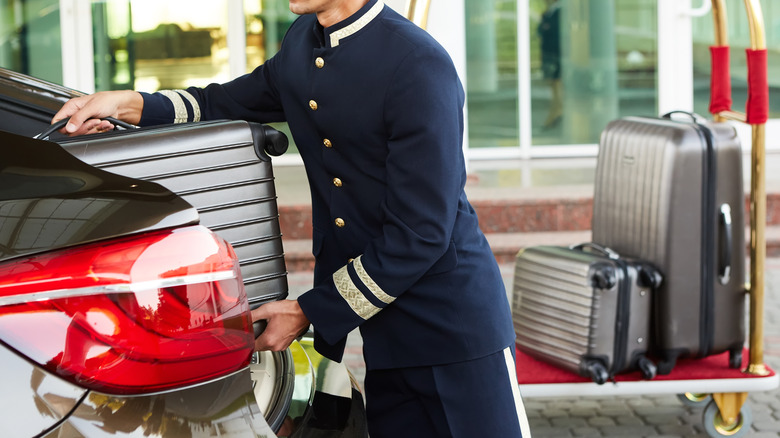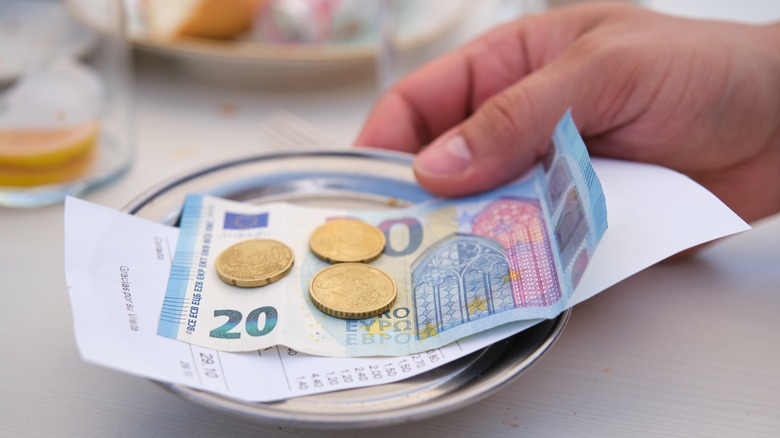Travel Guides International Travel Etiquette
Caitlyn Knuth
Depending on where you set your travel sights, tipping can play an important role in your experience. It might even set a precedent for how you’re perceived in terms of generosity. In the U.S. tipping an average of 20% of your bill at restaurants is not required, but entirely expected.
According to the U.S. Department of Labor tipped employees must earn a minimum of $2.13 an hour. This means restaurant service workers require tips to earn a livable wage. Leaving a minimal tip or nothing at all understandably comes across as offensive.
In Spain, the tipping rules aren’t the same. This is most notably because of higher base salaries. The Economic Research Institute estimates most waiters and waitresses in Spain earn an annual salary of around €17,600. This is typically enough to live on and allows service workers to view tips purely as a bonus to their income.
These drastic differences in tipping expectations can cause some inevitable confusion. Americans heading to Spain might assume they need to leave a 20% tip at the end of a meal to show appreciation. The server receiving the tip will likely be baffled by what is perceived as an unnecessarily generous amount.
The result of not understanding the tipping culture in Spain is generally a more expensive trip than necessary for travelers. Taking time to know when and how to tip is sure to reduce social stress and worry. It’s also going to help you keep more money in your wallet.
Expectations around tips in Spanish cabs and hotels

SARYMSAKOV ANDREY/Shutterstock
Questions around tipping often start upon arrival in Spain. Those who are planning to take a taxi from the airport to their hotel might wonder what to tip the driver. In general, the cultural practice in the country is to round up the total to the nearest euro for an acceptable tip.
If your driver goes above and beyond what he or she is expected to do and helps with luggage, consider leaving something more to show your appreciation. The same goes for an impromptu tour or area information provided along the route. However, if you decide to simply leave what the meter reads, you won’t be faulted for it.
Expectations around tipping are more standardized when it comes to hotel staff and services in Spain and there are some general amounts to keep in mind depending on what your hotels provide. If a doorman assists with luggage or helps you organize a cab, leave €1 or €2 as a tip. Similarly, porters expect to receive tips of about €1 per bag while room service professionals also earn around €1 to €2 per delivery.
The more generous tips typically go to the housekeeping staff and the hotel concierge. As a rule of thumb, set aside €2 to €5 per day that you’ll leave in the room for housekeeping staff. A hotel concierge should be tipped anywhere from €5 to €10 for any services rendered during your visit.
Tipping on tours and when dining out

Alena Veasey/Shutterstock
Exploring Spain’s attractions tops many itineraries. A good way to see all of the highlights is to book a city tour or two during your visit. The type of tour you take typically determines how much to tip your tour guide.
Many tour guides in Spain work as freelance professionals. This means that tips are more than welcome. If you’ve booked a private tour with a guide, plan on tipping anywhere from €10 to €20 depending on the length of the tour and how much customized care the guide provided along the way. In larger Spanish cities, there are many options to participate in free large-group tours. For these experiences, set aside €5 as a tip for your tour guide.
Another highlight of time spent in Spain is the opportunity to get out and enjoy savory moments at local restaurants. When you’re enjoying a meal with table service included, feel free to leave your change as a tip on the bill. If you happen to be dining out with a large group, leaving a 5% tip on the bill would be considered acceptable.
Cafes and bars expect even less in the way of tipping in Spain. Many people don’t tip at all for a quick coffee or beer in the country. Some patrons just leave their change behind. While this can feel uncomfortable for Americans who are used to leaving that 20% everywhere they go, strictly paying the bill isn’t a problem here.

